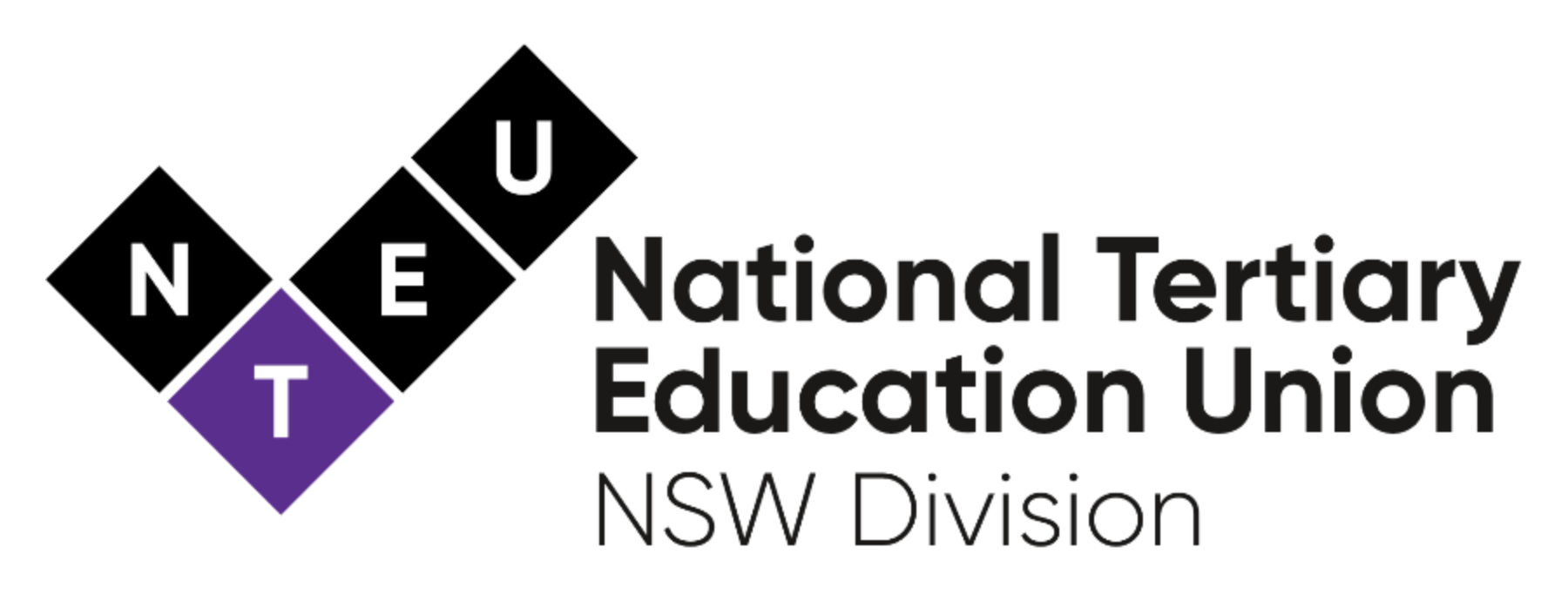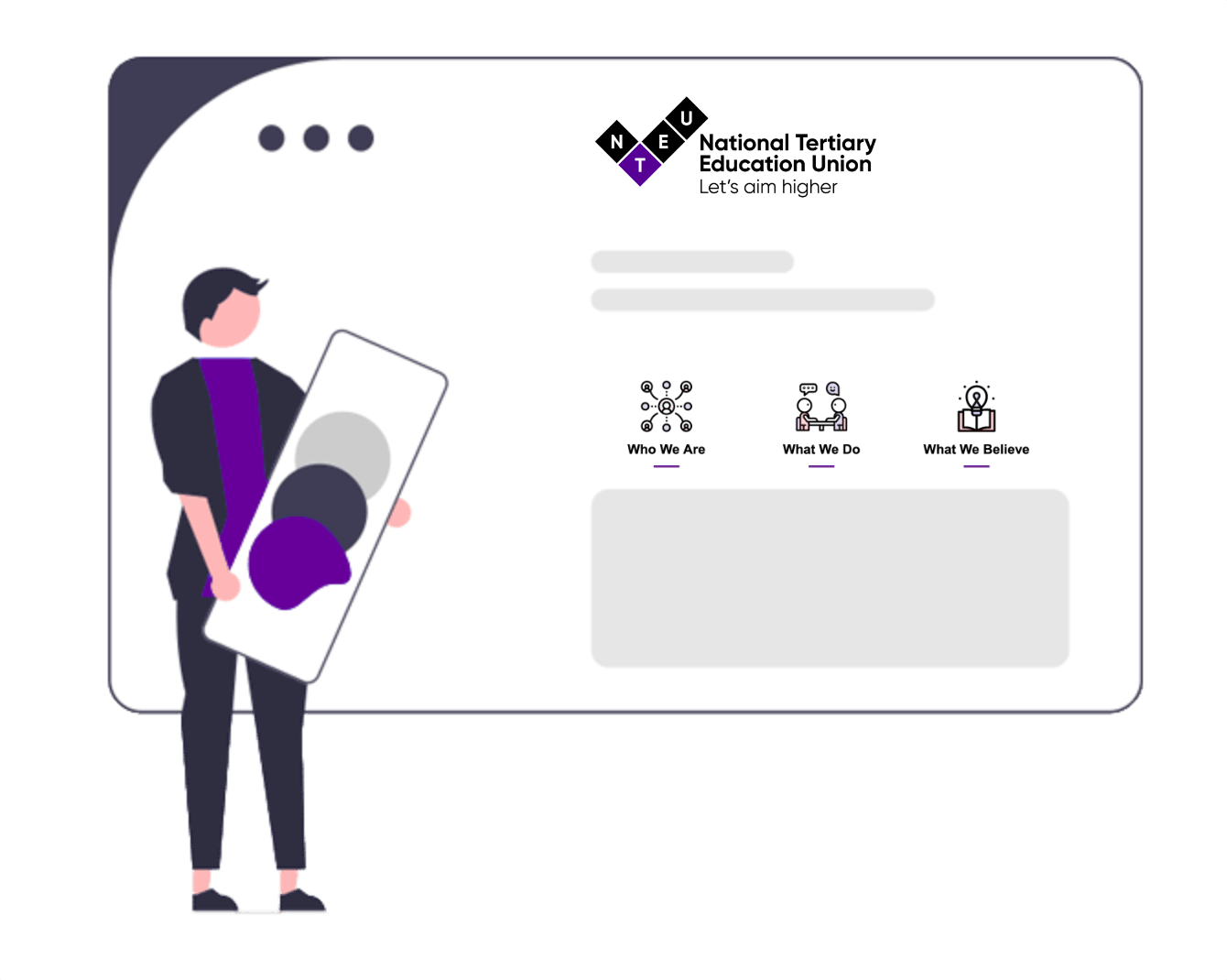STRONGER TOGETHER
Getting help at work
Everyone deserves fair treatment and safe conditions at work. This page offers basic information about your workplace rights.
For tailored advice, support with workplace issues, or representation, you’ll need to be a union member.
Join us today or get in touch to find out how we can help.
Getting help and advice
What kind of help can the union provide with workplace issues?
The union provides industrial advice and support to members on a wide range of workplace issues. This includes help with:
- Pay and conditions under your enterprise agreement or award
- Disciplinary processes and investigations
- Performance management and workload concerns
- Bullying, harassment or discrimination
- Redundancy and termination of employment
If the issue relates to your job, pay, or rights at work, we can likely assist. Our staff include experienced industrial officers and organisers who work with members to resolve issues both informally and formally.
Important: We provide industrial advice, not legal advice. This means we can assist with your rights under workplace laws and agreements, but we do not act as lawyers or provide advice on broader legal matters.
To get help, you need to be a current financial member of the union. If you’re not yet a member, you can join here.
What’s the difference between industrial and legal advice?
Industrial advice is advice about your rights and obligations at work under enterprise agreements, awards, and workplace laws. This includes:
-
Pay and conditions
-
Disputes with your employer
-
Processes like investigations or performance management
Legal advice goes beyond that — for example, matters before a court, defamation, personal injury, or discrimination outside of work.
The union provides industrial advice only. If you need legal advice, we can sometimes refer you to a specialist.
Can I get help if I join the union after a problem has started?
If you join the union after a workplace issue has already begun, we’ll assess what support may be possible — but we’re not obliged to provide full representation for pre-existing matters.
Joining before a problem starts ensures you get the full protection of union support.
You’re still encouraged to join now, and then contact us. In some cases, we may be able to give general guidance or refer you elsewhere, but formal representation is typically reserved for existing members.
I’m not a member yet, can I still talk to someone for advice?
Yes — you can get general information about membership, workplace rights, or how the union works. But we can’t give specific advice or representation unless you’re a member.
We’re happy to explain how the union can support you — then it’s your choice to join.
To speak to someone, get in touch here, or join online to access full support.
Who will handle my issue — a union rep, organiser or industrial officer?
Your enquiry will be handled by a union organiser or industrial officer, depending on the nature of your issue.
- Organisers support member organising, campaigns and basic advice
- Industrial Officers handle complex or formal matters, like disputes or representation
We may also link you with your local workplace delegate if appropriate.
How long will it take to get support?
We prioritise urgent workplace issues and aim to respond as soon as possible.
- Urgent matters (disciplinary meetings, investigations) are triaged within 1–2 working days
- Non-urgent enquiries are usually answered within a week
Response times may vary depending on demand, so please include all relevant details when contacting us.
Can I choose to remain anonymous when I raise an issue with the union?
You can speak to us confidentially and get advice without your employer being notified.
However, if you want the union to act on your behalf, we’ll usually need:
- Your written consent
- Your name to be disclosed to the employer (depending on the situation)
We’ll never take any action without your permission.
Workplace Rights and Disputes
What are my rights under my enterprise agreement?
Your enterprise agreement sets out your specific pay, conditions, leave entitlements, and dispute resolution rights.
- Every university or workplace has its own agreement. The union can help you:
- Understand what applies to your role
- Check if your employer is complying
- Use the dispute process if needed
You can usually find your agreement on your university’s HR site or Fair Work’s website.
Can I ask a union rep to attend a meeting with me?
Yes — if you’re a financial member, we can attend meetings such as:
- Disciplinary or performance reviews
- Return-to-work meetings
- Redundancy consultations
- Pay or workload disputes
You’ll need to give us as much notice as possible so we can prepare and ensure someone is available.
What should I do if I’m being bullied or harassed at work?
Bullying is repeated, unreasonable behaviour that causes a risk to health and safety. Harassment includes behaviour based on a protected attribute (e.g. race, gender, sexuality).
You should:
-
Keep written records of incidents
-
Avoid confronting the person alone
-
Contact the union to get advice on your options
We can help you understand policies, raise a grievance, or take it further if needed.
All reports are treated confidentially. You are not alone.
What should I do if I’ve received a 'show cause' letter?
A show cause letter is a formal step before possible disciplinary action or termination. It asks you to explain why action shouldn’t be taken.
You should:
- Contact the union immediately
- Avoid replying until you’ve received advice
- Request a support person for any related meetings
We’ll help you prepare a response and make sure the process is fair.
What should I do if I’m being investigated at work?
If you’re notified of a workplace investigation, contact the union immediately — especially before responding in writing or attending a meeting.
You have the right to:
- Be told what the allegations are
- Have a support person with you
- Respond in a fair and reasonable timeframe
The union can help you understand the process, respond appropriately, and ensure your rights are respected.
All discussions with the union are confidential.
What should I do if I’m being made redundant?
Redundancy must be genuine and follow consultation processes set out in your enterprise agreement or award.
You have a right to:
-
Be consulted before any final decision is made
-
Know the selection process
-
Receive redundancy pay (if eligible)
The union can check whether the redundancy process is lawful and help you respond if something’s not right.
Contact the union early — before signing anything.
I think I’m being underpaid, what can I do?
Start by:
- Checking your payslip against your enterprise agreement or award
- Gathering any documentation (rosters, contracts, emails)
- Contacting the union for advice
We can help determine if you’ve been underpaid and take it up with your employer — either informally or through a dispute.
Many staff are unaware they’re missing entitlements — if in doubt, ask.
I’m a casual staff member — do I have any entitlements?
Casual employees still have rights, including:
-
Minimum rates of pay
-
Superannuation
-
A safe workplace
-
Certain leave entitlements (e.g. unpaid carer’s leave)
-
Potential to convert to permanent after regular service
The union has a strong track record supporting casuals with wage theft, misclassification, and unfair treatment.
Union processes and limits
What happens after I contact the union for help?
Once you contact us, the process usually follows these steps:
- Triage – Your issue is assessed and referred to the appropriate organiser or industrial officer.
2. Initial advice – You’ll be contacted to discuss your issue and what support we can offer.
3. Action – If appropriate, we may help you prepare correspondence, attend meetings, or formally represent you.
Response times depend on urgency and workload, but we aim to acknowledge urgent issues within 1–2 working days.
What information do I need to provide when I contact the union?
Some text etc.
Can the union help if I’ve already hired a lawyer or gone to Fair Work?
If you’ve already taken action — such as hiring a lawyer, submitting a complaint to Fair Work, or lodging a grievance — the union may still be able to help, but:
-
We can’t duplicate legal advice
-
We can’t always take over an active case
It’s best to contact us as soon as possible.
We’ll talk through what’s already happened and advise you on next steps.
Why won’t the union help with issues that happened years ago?
The union’s support is focused on current workplace issues. If a matter happened a long time ago, it’s often:
- Harder to investigate or prove
- Outside the time limits for formal complaints
- Not possible to resolve effectively
We usually can’t assist with historic issues unless you’re already a member and there’s an ongoing impact (e.g. unpaid wages).
Joining now ensures you’re protected before things escalate.
About union membership
Why do I need to be a member to get support?
The union is a member-based organisation, and support with workplace issues is available only to members.
If you are currently a member, you can contact us for advice and support. If you’re not yet a member, you’re welcome to join now, but please note that we don’t usually provide support for issues that arose before you joined.
The strength of our work comes from collective membership. It’s not fair to existing members — who contribute fees to support our work — to offer the same support to people who haven’t joined. Like any form of insurance or advocacy, it only works when people join before there’s a problem.
Once you join, we can discuss your situation and determine what assistance may be possible.
What does union membership cover?
Union membership means standing together to improve and defend rights at work — not just for yourself, but for your colleagues too.
As a member, you’re part of a collective that:
-
Campaigns for better pay, conditions and job security
-
Supports each other through disputes and organising
-
Provides advice and representation on workplace issues
You also gain access to:
-
Journey to Work insurance (in some states)
-
Union Shopper discounts and member benefits
-
Training, events, and opportunities to get active
Being in the union isn’t about individual service — it’s about solidarity and showing up for one another.
Can I talk to someone before joining the union?
Yes — you can get general information about membership, workplace rights, or how the union works. But we can’t give specific advice or representation unless you’re a member.
We’re happy to explain how the union can support you — then it’s your choice to join.
To speak to someone, get in touch here, or join online to access full support.
Can I claim a tax deduction for union fees?
Yes. Union membership fees are 100% tax-deductible in Australia.
You’ll receive a summary of your payments in July each year, which you can include in your tax return.
If you’re not a member…
The strength of our work comes from collective membership. Like any form of insurance or advocacy, it only works when people join before there’s a problem.

